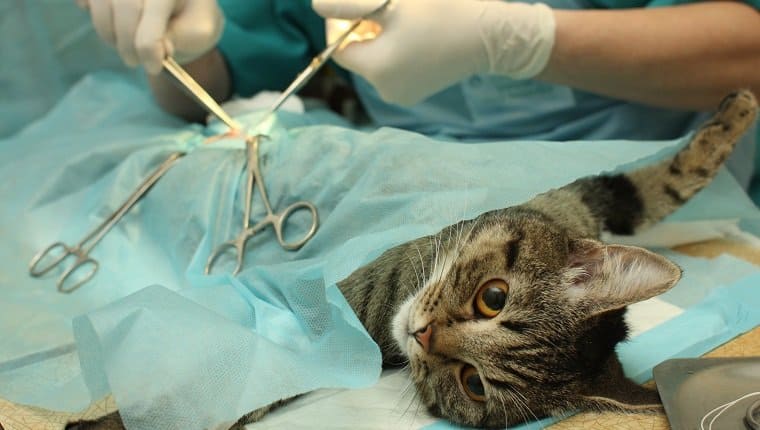Affordable spay and neuter services for low income residents may be on its way to Oshawa and Durham
Published May 24, 2024 at 4:31 pm

A little low-cost snip in the right place may be all it takes to help reduce the overpopulation of companion animals – especially cats – and help them live their best healthy lives.
The affordable spay and neuter service for eligible low-income residents may soon be a thing in Oshawa and the rest of Durham, with Spay Neuter Initiatives Association (SNIA) bringing a delegation to Oshawa Council Monday to ask for annual funding to make the subsidized service a reality.
SNIA wants to bring its aptly-named SNIP service to all eight municipalities in Durham, with each community providing five cents a person to provide the subsidized service.
“Our goal is to address the critical issue of pet overpopulation by facilitating subsidized, low-cost spay/neuter procedures for the animals of lower-income residents,” the organization said in its letter to Oshawa Council. “By doing so, our aim is to reduce the strain on local shelters by reducing the number of intakes each year, enhance animal health in our communities, and promote responsible pet ownership.”
Oshawa’s share of the program, based on its population, would be $9,284.60 per year.

Spay Neuter Initiatives Association was started in 2010 by a group of dedicated animal rescuers and advocates who wanted to bring low-cost spay neuter services to Durham to create a humane and sustainable community where every companion animal can live a healthy, happy life free from the challenges and dangers of overpopulation.
The group became a registered charity in early 2011 and since then has worked with local vets and animal care clinics to provide low-cost spay/neuter procedures to the animals of Durham.
SNIA worked on a small scale initially but have been forced to ramp up their efforts – and with it, their financial needs – because of rising pet abandonment and overpopulation that developed during the pandemic and has persisted to today.
The group believes that furry friends offer much more than mere companionship; they become anchors of emotional support, resilience and hope. Finding ways to make the joys and benefits of pet ownership accessible to a broader population, including those who may not have the financial means to always be able to care for an animal, forms a big part of their mandate.
“We believe that every pet owner should have access to affordable veterinary care,” noted Board Chair Marin Field. “Our program ensures that financial constraints do not prevent responsible pet guardians from seeking essential services.”
Regular fees for services average about $205 (spay) and $165 (neuter) for cats and more than $400 for large dogs. Subsidized fees range from $165 to $220 but the organization is finding even those reduced fees are too onerous for many families struggling to pay the bills.

Since the group’s low-cost spay/neuter veterinary program launched April 15th, 2024, Field said they have received an “overwhelming response” from pet owners, with more than 80 per cent of applications coming from Oshawa.
“We have also learned that we must face a stark reality: many residents are truly struggling financially due to the present economic situation,” he said. “Families, more than ever, are grappling with food insecurity, housing instability and limited access to medical and dental care – not only for themselves but for their beloved four-footed family members. Our program aims to address this critical need.”
The fees are reasonable, Field noted – as low as $100 for cat spaying and $80 for neutering – but a “significant number of applicants” find it impossible to cover even those costs. The small investments from each municipality, he said, would help reduce the number of unwanted pets, control the stray population and ultimately decrease the financial burden on local animal shelters.
By preventing unwanted litters, the group believes they are contributing to a healthier pet population with reduced veterinary costs. It’s not just an animal welfare issue, Field added. “It’s a public health strategy, a cost-saving measure and a moral imperative.”
“Supporting a low-cost spay/neuter program isn’t just about compassion – it’s a smart financial decision. By investing in the well-being of our community’s animals, municipalities can simultaneously enhance public safety, reduce expenses, and create a more harmonious environment for all residents.”
The financial asks are for 2025 but the group notes that the Town of Whitby has already chipped in with a $5,000 for 2024 and the Township of Scugog has supported the Spay/Neuter Day initiative to be held in Port Perry June 19 with a $500 grant.
Oshawa Council is expected to ask staff to come back in the third quarter this year with a report outlining more financial details of the program.






